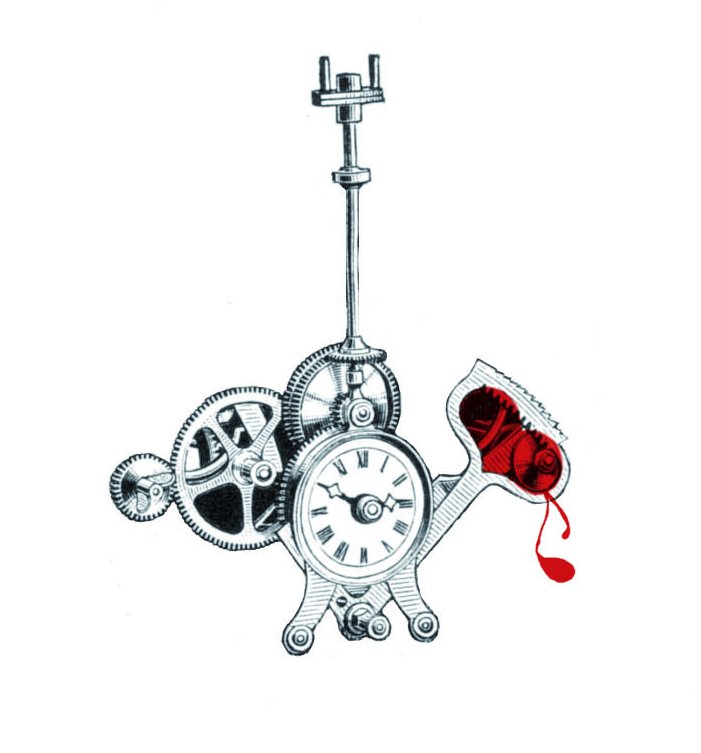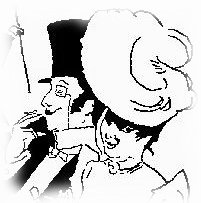
A secret dedication hidden in Maurice Ravel's music - Home
| Page 5 |  |
||
| Ravel and
Love |
|||
|
|
|||
| "His essential talent was to know how to express an immense tenderness." | Rosenthal op. cit. p. 11. | ||
|
|
| Year | Month | Facts, quotations... | Sources. | ||
| 1875 |
March | Born
in Ciboure, near Saint-Jean-de-Luz, in the Pays Basque (France) |
|||
| 1895 | November | A melody repeating itself
is spoofing a wagnerian theme : the irresistible call (Tristan un Isolde). |
Habanera, number 7. | ||
| 1896 |
December | He
cries "like a child" hearing Tristan et Isolde,
thereby suprising much his close friend Ricardo Viñes. |
Journal de Ricardo Viñes, soon published by Nina Gubisch (Press of the University of Montréal, Canada). | ||
| 1902 - ... | When
the Apaches were
gathering,
" the women were excluded to avoid troubles. Ravel, by the way, Ravel
so courteous, was rather flinty on that matter. He wanted to escape
from "grappin". A singer of great skill, and shrewd, tried
for a
moment to catch him. In vain." |
L'époque Ravel,
by T. Klingsor, in Ravel
par quelques uns de ses familiers. éd. du
Tambourinaire. p 134. |
|||
| 1908 | January | Ravel is proposing l'Heure espagnole
to Albert Carré, administrator of the
Opéra-Comique : "Rejected... impossible to
impose such a subject to the ingenuous ears of the
Opéra-Comique subscribers. Think : these lovers locked in
clocks, carried to the bedroom! One knows well what they will do there
!!! (sic)* [...**] This prudish mentality is to rather astonishing in
Carré. Isn't he young to think of becoming hermit ?"
* The (sic) due to
Ravel who wants Ida to understand that Carré is speaking..
** There is quoted Schopfer, in a way I couldn't explain (so I prefered not to translate it, see here). |
AO p 94. Letter to Ida Godebska. | ||
| 1908 | March |
"In Le Monsieur aux
Chrysanthèmes
one stages, Catulle
Mendès writes, "the most stupid and disgusting vice". The
old
ones are always very virtuous..."
The play from M. Armory given in the Nouveau Théâtre is about masculine homosexuality. |
AO, p. 98. Letter to Ida Godebska. | ||
| 1919 | January |
"The
morals... it's what that I use and I'm determined to keep. We're not
fated to marry, we who are artists. We're seldom normal, even less
often is our life."
Mrs Casella has just divorced from her husband the composer Alfredo
Casella. |
AO
p.63 Letter to Mrs Casella. |
||
|
|
|||||
|
"One
talks of my hardness of heart, he told Jacques de Zogheb, a neighbour
at Montfort-l'Amaury.They're wrong. And you know it. But I'm
Basque. The Basque have a violent sensibilty, but they litte confide,
and only in few people."
|
Souvenirs Ravéliens, Jacques de Zogheb in Ravel, par quelques-uns de ses familiers, éditions du Tambourinaire 1939 | ||||
| For Rosenthal's belief upon women's influence on Ravel, see page 2. | |||||
|
|
|||||

| Love can be... | Works. | Comments. | |
| dangerous, | Ballade de la reine morte d'aimer. (ca 1893) | ||
| Spanish, | Sérénade
grotesque (ca 1892-1893), Alborada del gracioso
(1905). |
||
| devotee, | Sainte
(déc.1896). D'anne
jouant de l'espinette (déc. 1896). D'Anne qui me jecta de la neige
(jan. 1900) |
The woman is a saint, "musician of the silence" (Mallarmé). | |
| oriental, | Schéhérazade
(an Ouverture
in Nov. 1898 then with the same title, 3 melodies in 1903) |
||
| Greek, | L'Indifférent (of Schéhérazade II, 1903) | Vuillermoz wonders if we
see, in this poem, the inviation of a courtesan or of a "Greek
philosopher". |
|
| flowery, | Manteau de fleurs (1903) | "Rose suits her
beauty". |
|
| proud, | Quel galant m'est comparable
(fév. 1904) |
"What lover could match me up ?" |
|
| magic, | La Cloche engloutie (1906-1913) | Henri, a bell-caster is
seduced by
the elf, Rautendelein. He leaves his village, his wife and children to
live with her in the mountains, trying to achieve his masterpiece,
among fairy creatures : the Dwarves, the Faun and the Ondin. |
|
| animal, | Le Cygne des Histoires naturelles.
(déc. 1906) |
... | |
| adulterous, | L'Heure espagnole (
(1907-1911) |
Her name is Concepcion and her lovers-to-be travel by clocks. | |
| on the grass, | Sur l'herbe (juin
1907). |
In this poem of Verlaine, even the priest, who drank a little, seem not to be indifferent to Camargo's neck. | |
| childish, | Ma Mère l'Oye
: La Belle au bois
dormant, la Belle et la bête. (1908) |
||
| rustic, | Daphnis et Chloé
( 1909-1912) |
In a letter, Ravel did refer to himself as the "poor Daphnis"... | |
| danced, | and mainly upon a Walz : Valses nobles et sentimentales,
la Valse,
the many Walzes of l'Enfant
et les Sortilèges. |
"The
best trick
that you can play to the Devil, is to propose
him a dance that he canno refuse." (Ravel quoted by Rosenthal)
|
|
| romantic, | Adélaïde ou le langage des fleurs (1912) | The music is the Valses nobles et sentimentales.
Ravel wrote himself the libretto extremely fast in a rush :
Adélaïde,
voluptuous and natty, seduces the young and sincere Lorédan, then
the rich Duke. She gets some beautiful gifts from the latter... before
yielding to the first. And everyone gives everyone symbolic flowers to express one's feelings. |
|
| virginal, | A la manière de Chabrier. (june 1912) | Quotes Gounod's famous Faust, when Siebel tells the flowers of Marguerite's garden : "Faites-lui
mes aveux, portez mes vœux..." Tell her my flame, carry my wishes" (1) |
|
| poetically said, | Trois poèmes on Mallarmé's texts (1913) | Each of these three poems evoke love but in three different ages : In "ô
calme
soeur"(O, calm sister), love is adolescent and pure, then, in
"Princesse, nommez-nous berger de vos sourires" [Princess, name me
sheperd of your smiles], it is mature and longing; whereas the last
poem referes to its fertility : deux bouches n'ont bu, ni son amant, ni
ma mère, jamais
à la même chimère, moi sylphe de ce
froid plafond !
" (two mouthes never drank, neither her lover nor my mother, the same
chimera, me, sylph of this cold ceiling.) |
|
| a wounded friendship, | Tombeau de Couperin ( 51914-1917) | Ravel dedicated all the pieces to his friend killed in action during the first world war. |
|
| in the meadow or in the woods, | Nicolette, Ronde (1915) | Written by Ravel. |
|
| filial, | L'enfant et les Sortilèges (1919-1925) | Colette proposed Ravel a original poem "Divertissement pour ma fille"
that Ravel, according to Rosenthal, changed a lot. Colette pretends to
have lost the original manuscript but she gave Hélène
Jourdan Morhange a single page... that is completely different from the
final version. |
|
| very "Renaissance", | Ronsard à son
âme (1923) |
||
| exotic, | Chansons madécasses
(February 1925- February 1926) |
||
| Spanish (II) | Don Quichotte à
Dulcinée (1932-1933) |
||
|
|
|||
| (1) Thereafter : "Flowers that were born beside her, tell her that she's wonderful, that my heart, day and night, yearns for her love! " | |||
|
|
|||